The changes in policies are sufficient to change the development path of an industry. With the release of a policy called "Regulations on the Investment Management of Automobile Industry (Exposure Draft)" (referred to as the "Management Regulations"), the development direction of new energy automobile industry will be significant. change. This management regulation is mainly used to guide and manage the investment in related projects of auto vehicles and parts and components, and the reason why it may affect the development direction of the new energy auto industry is that the policy is definitive for the investment in automobile projects for the first time. The many start-up car companies that broke into the army of construction vehicles are undoubtedly a major blow.
â– There is a possibility of reaching the four places
According to the management regulations, the provinces of pure electric vehicle projects shall meet four basic conditions: the proportion of new energy vehicle ownership is higher than the national average, the charging infrastructure is relatively complete, the ratio of piles and trucks is higher than the national average, and new energy zombie enterprises, The cleanup of zombie qualifications was completed, and the construction of the existing new pure electric vehicle project was completed and the output reached the construction scale.
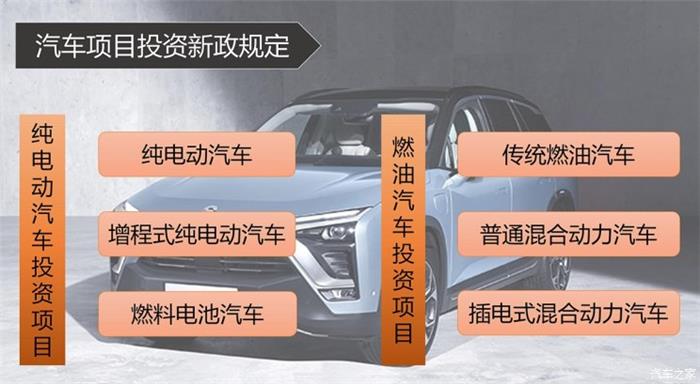
Among them, only the “construction of the new pure electric vehicle project and the output reached the scale of construction†will put seven provinces and cities into the unqualified queue. The number of new energy vehicles to be promoted and the number of charging piles required will reduce the number of qualified geographical teams.
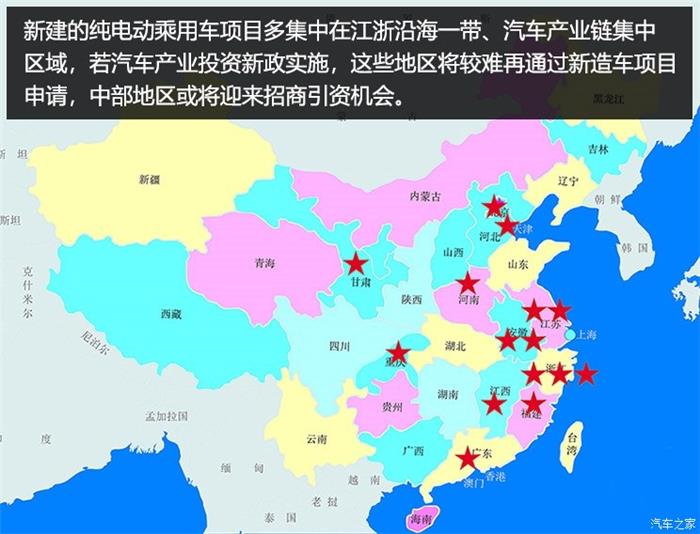
The access policy for the pure electric passenger vehicle project has been implemented since July 2015. As of June 2017, a total of 15 companies have passed the review of the National Development and Reform Commission. These 15 companies are located in 11 provinces and cities in Beijing, Tianjin, Chongqing, Guangdong, Zhejiang, Henan, Jiangsu, Jiangxi, Fujian, Anhui, and Gansu. Six of the 15 companies have officially obtained qualifications for manufacturing vehicles. From the perspective of sales volume in 2017, there may be only four companies with the expected scale of production: Beiqi New Energy, Chery New Energy, JMC New Energy and Zhidou. This means that in addition to Beijing, Anhui, Gansu, and Jiangxi, the above provinces and cities are temporarily unable to build new electric-electric vehicles projects in other provinces and cities.
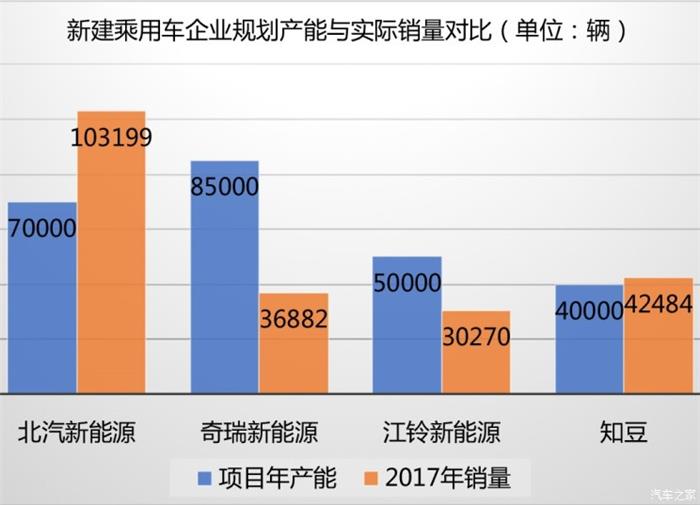
As there are no publicly available data on the sales of new energy vehicles and the construction of charging piles in various provinces and cities in China, the data on the compulsory traffic insurance for new energy vehicles from January 2011 to April April 1818 have been edited and compiled. Charging pile data, do a rough comparison reference. It can be found that except for Hong Kong, Macau, Taiwan and other 31 provinces, municipalities, and autonomous regions, only Beijing, Shanghai, Shandong, Hunan, and other places have high potential for compliance, which has not yet included the zombie enterprise clearance threshold. The details are as shown in the following table:
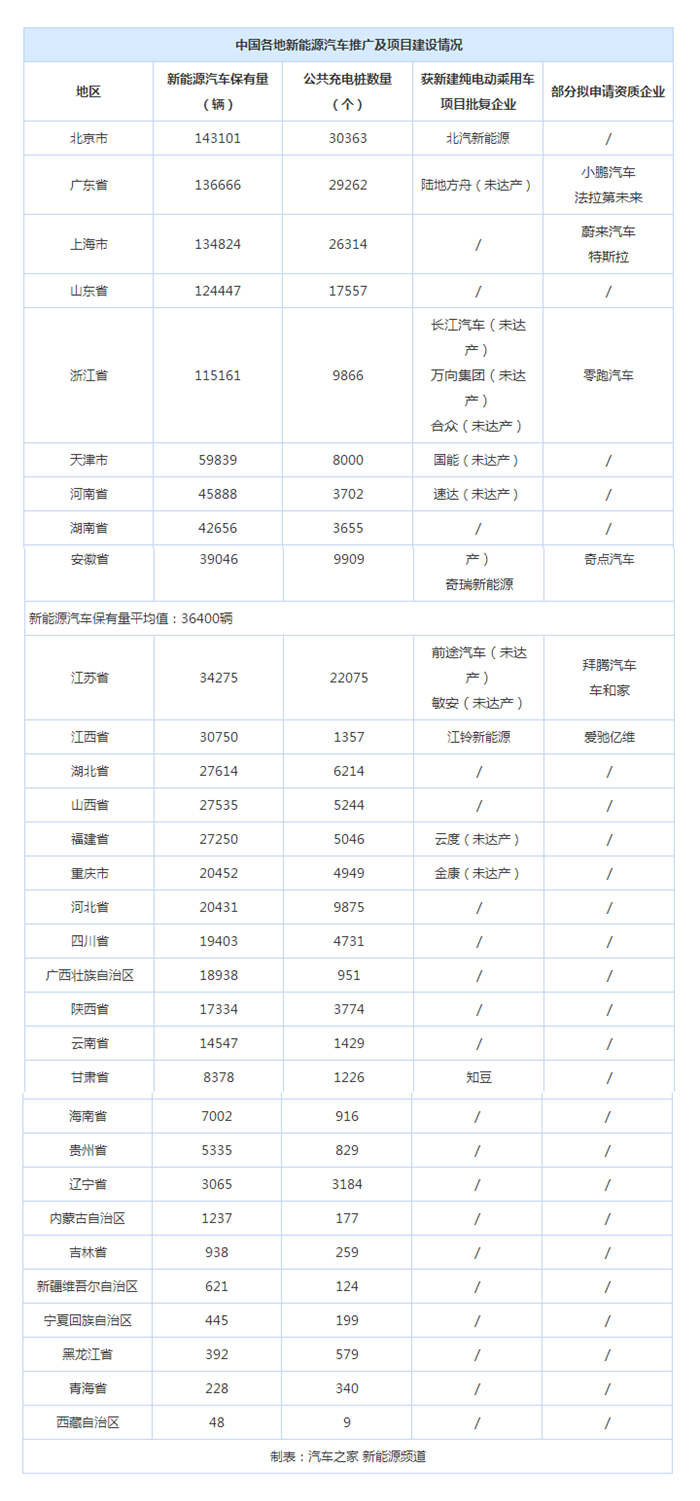
â– Difficulties in creating new car companies
There are two thresholds for start-up car manufacturers to obtain vehicle qualifications, one is the approval of vehicle-building projects, that is, the part covered by the above-mentioned management regulations; the other is that after the enterprise obtains approval of vehicle-making projects and completes the project construction, the Development and Reform Commission and the Ministry of Industry and Information Technology will With the acceptance of the construction of the project, the enterprises that have passed the acceptance will enter the announcement of the Ministry of Industry and Information Technology. After passing the two thresholds and entering the announcement of the Ministry of Industry and Information Technology, the start-up car company was officially recognized as a qualified vehicle manufacturer, and then it would be listed and sold until the product entered the model catalog.
In addition to the 15 companies that have been approved by the National Development and Reform Commission's pure electric passenger vehicle project, there are still dozens of startup car companies that are currently blocked outside the qualifications. As the previous approval of the pure electric passenger vehicle project was temporarily suspended, companies near the first car mass production had to choose “manufactured†production, such as Weilai car, Xiaopeng car, singularity car and so on.
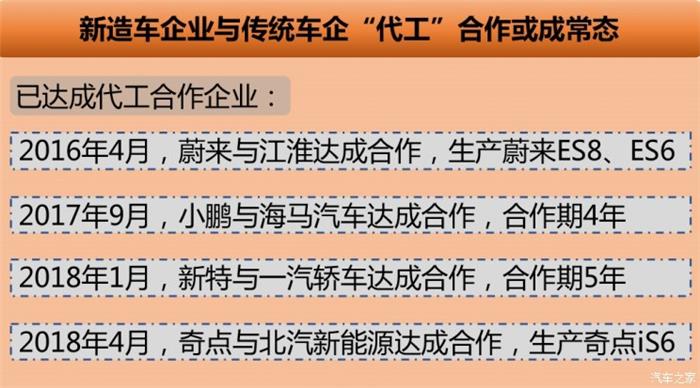
Although the "OEM" production has the advantage of reducing the investment pressure of the car-building project and accelerating the mass production process, it faces the industry's doubts that the product quality is difficult to control. In addition, the foundry production of start-up car companies is not conducive to the shaping of their own brand image. Therefore, most of the newly created car companies did not give up their appeal for qualifications, and they are still waiting for the approval of the car repair project.
Take Weilai Motors as an example, Weilai Automobile and Jianghuai Automobile have already reached an OEM agreement. The first production vehicle Weilai ES8 will be rolled out at the joint venture plant of the two parties. The second production vehicle Weilai ES6 also Will be offline at the factory. However, in February this year, Weilai Motors decided to build a second factory in Shanghai and plans to use the plant to apply for qualification of pure electric passenger cars.
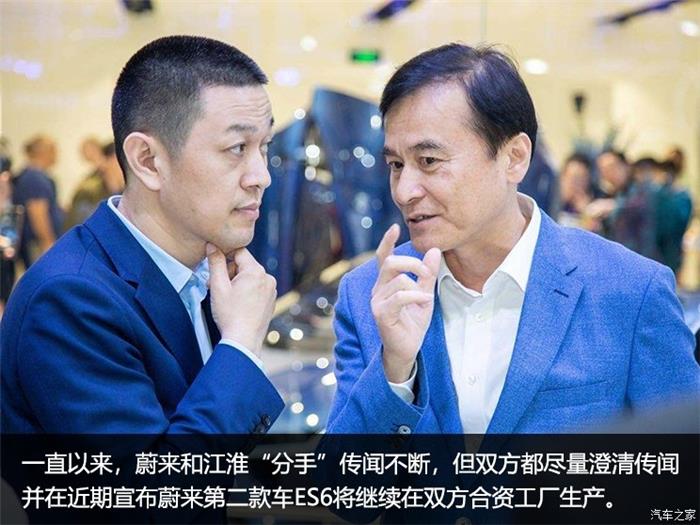
There is no approved start-up vehicle manufacturer in Shanghai. At the same time, Shanghai's new energy vehicle promotion and charging infrastructure construction also ranks first, basically meets the requirements of the management regulations. Weilai Motors has a larger application for a car repair project in Shanghai. hope. However, Tesla set up a wholly-owned subsidiary in Shanghai on May 10 this year, which was interpreted by the industry as Tesla's investment in Shanghai. Which companies, Weilai Automobile and Tesla, can take the lead in obtaining approvals for vehicle-building projects, it remains to be seen whether they will affect the application of each other's projects.
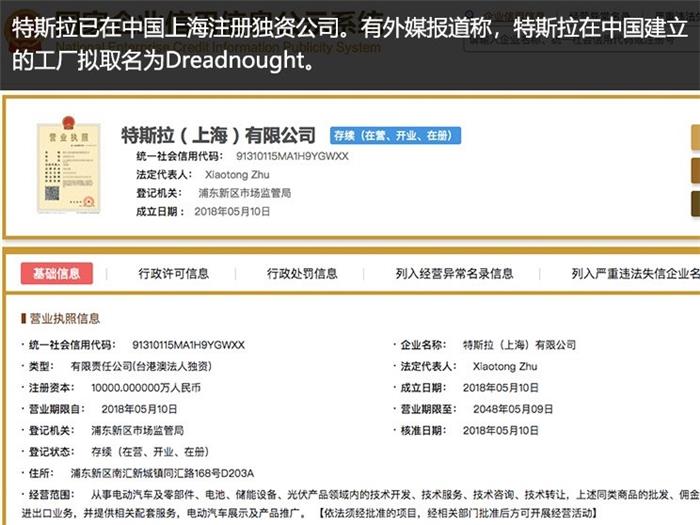
Compared to other startup car companies, Weilai Automobile chose to build a factory in Shanghai very fortunate. The provinces selected by car companies such as Xiaopeng Automobile, Baiteng Auto, Car and Home already have a pure electric passenger vehicle project, which means that applications for new projects will wait until the enterprises that have obtained project approvals have reached production capacity. There is considerable uncertainty as to when the project approval can be achieved. Enterprises that have not received approval from the project can only transfer to other provinces, or temporarily select "manufacturers" for production.
â– Decentralize project approval authority to local
At the same time as the facility's high barriers to entry, the National Development and Reform Commission will explicitly assign the approval authority for the construction of the vehicle to the local Development and Reform Commission. Behind this collection is the helplessness and ambiguity of policy design.
The original intention of the new pure electric passenger car project was to encourage social capital to enter the auto industry and introduce carp to the auto industry to stir up the Chinese auto market. However, after the implementation of the policy, the effect was not as good as expected, and those who made a car can be described as “a mixed bagâ€, and 15 companies approved by the National Development and Reform Commission were criticized by the industry. The National Development and Reform Commission also felt that there was a policy of instigating the original intention and suspended the approval of the qualification two years after the implementation of the policy.
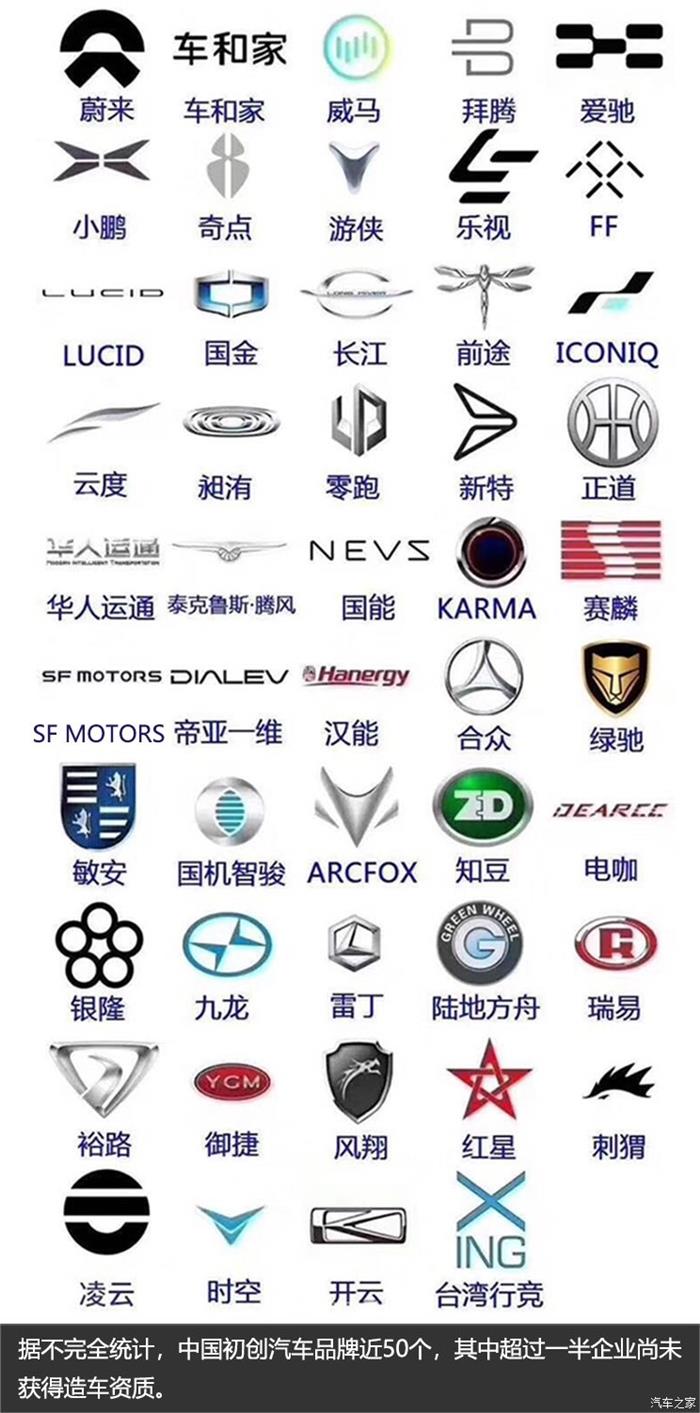
Behind the National Development and Reform Commission's rapid review of 15 automakers is the common interest appeal of local governments and corporations. After the real estate industry, new energy vehicles are another hot spot for investment, and they are also hot items that local governments compete for. In order to introduce a high-quality new energy automobile project, the local government not only grants land, grants money, but also promises to help companies apply for a vehicle qualification.
In order to help enterprises get approval for the pure electric passenger vehicle project, some local government leaders personally led the team to lobby the relevant examination and approval department of the National Development and Reform Commission. This made the approval department very headache. Decentralizing approval authority to local governments is equivalent to the National Development and Reform Commission getting rid of this “hot potatoâ€. And setting a higher barrier to entry is to prevent local governments from “pursuing random reviewsâ€.
At the same time, the regulations also require the administrative department of the State Council to establish an inspection system for auto production capacity and information release so as to understand the changes in vehicle production capacity in a timely manner, strengthen production capacity early warning and prevent overcapacity, so as to better manage automobile investment projects in different regions.
â– Weaken joint venture shares than let go
The increase in the number of applications for construction projects will make it difficult to apply for qualification qualifications for start-up vehicle manufacturers, but it will also weaken the influence of joint ventures. In the next five years, China will gradually liberalize foreign capital ratio of new energy vehicles, special vehicles, commercial vehicles and passenger vehicles. On April 17, the National Development and Reform Commission announced that in 2018, the ratio of foreign-invested shares of special vehicles and new energy vehicles will be abolished; the ratio of foreign-invested shares of commercial vehicles will be removed in 2020; the foreign-invested-to-equity ratio of passenger cars will be lifted in 2022, while the abolition of joint ventures will be eliminated. More than two restrictions.
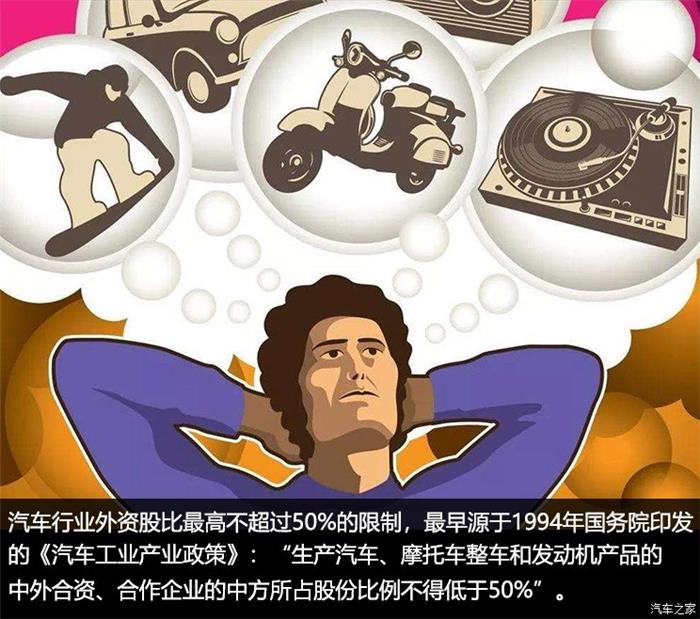
Compared with the liberalization of the joint venture stocks for the long-term reliance on the joint venture company's domestic car prices should be the head of a stick, and after the release of the policy, the auto industry did not appear fierce opposition. A number of analysts said that on the one hand, whether the number of auto joint ventures has been open to debate has long been over, car companies have been prepared for a long time, and the more important one is that the stock ratio liberalization does not mean that the qualifications are released, as long as the qualification is not put It is almost impossible for foreign automakers to completely withdraw from joint ventures.
The release of management regulations confirms the judgment of industry professionals. In accordance with the policy requirements, auto companies cannot apply for qualification applications through the fuel-car project, which means that the government will no longer approve the qualification of independent fuel-car makers. Whether it is a local car company or a foreign car company, if you want to obtain a qualification for building a car, only a single electric car project of a pure electric car project can be taken. By increasing the requirements of the investment entity and the location of the vehicle construction project, the actual impact will be further weakened.
In addition, it is worth noting that since 2017, there has been a new joint venture in the Chinese automobile industry, including Volkswagen-Jianghuai, Ford-Zhongtai and MINI-Great Wall. For these new joint ventures, applying for a new car project will also face the same problems. The choice of using the existing qualifications and production capacity of the Chinese company is a more realistic solution.
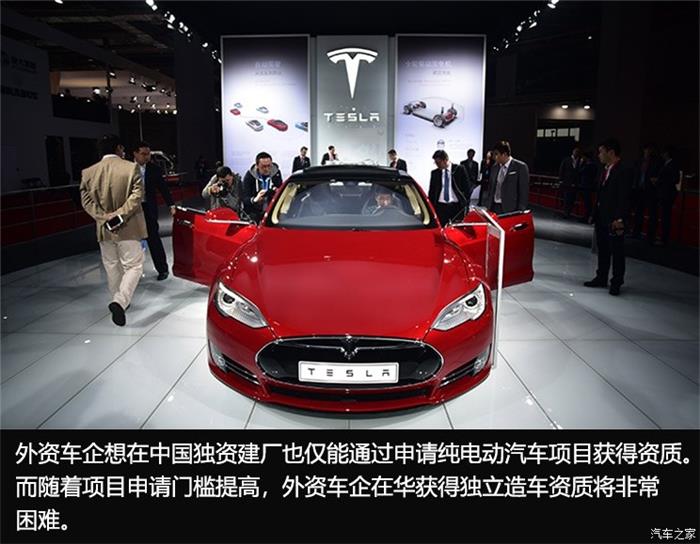
The full text concludes: China's auto industry is entering a development stage where investment management is becoming more stringent, markets are more open, and competition is fiercer. In the coming years, mergers, consolidations, and elimination will become the industry's development trend. China's auto market will move from “discrete†to centralized integration. China may also form several large international automobile groups in the same way as other countries. Some experts predict that this number will not exceed 10.
Raising the threshold for investment in automotive projects is equivalent to closing the door of the auto market, leaving only a small gap for new entrants with strong capabilities. The message behind the policy is that the existing vehicle production capacity and qualifications have been circulated. On this basis, the power of all parties can enjoy fighting and the strong can swallow more production capacity. The weak will face obsolescence and be eliminated. The situation, the elimination of the last few remaining companies will split up the car market.
Car Humidifier Essential Oil Diffuser,Car Aromatherapy Diffuser,Car Aromatherapy Essential Oil Diffuser,Car Scented Hanging Diffuser
Guangzhou Chiyang Scent Technology Co., Ltd. , https://www.diffuserscent.com